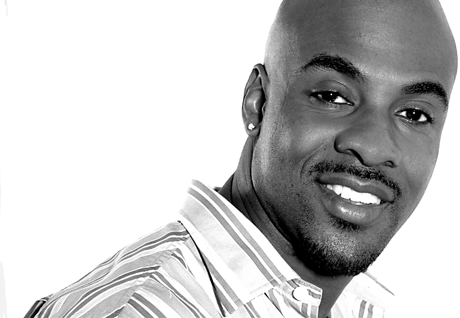Already a Canadian hip-hop icon whose foray into acting recently nabbed him a Gemini nomination, the man known to Canadians for letting his backbone slide is now adding author to his resume, with a book entitled Stick To Your Vision: How to Get Past the Hurdles and the Haters to Get Where You Want to Be hitting stores in early August. Named after his 1998 hit, the book, co-written with his wife Tamara Hendricks-Williams and featuring a foreword by Public Enemy's Chuck D., is a motivational self-help tome rather than an autobiography.
"An autobiography is semi self-indulgent," he says. "I'm still sticking to my vision, still hustling. I ain't coming in like the black Dr. Phil or something like that. I'm still kind of striving too." The man born Wes Williams has plenty of material from his own life that he readily draws on, including the periods of his career that were not always successful. "It's uncomfortable," he says. "[They're] booing you at [Toronto venue] the Concert Hall, that ain't an easy thing to do. Or you do an album and it's not well received ― it's not the easiest thing to do. But somebody can relate to that and it's not necessarily an MC or an artist, it parallels a lot of people's lives."
Maestro also uses examples from his pioneering achievements that forced the Canadian music industry to acknowledge the presence of hip-hop, but the noticeably humble actor and MC just sees that phase as one set of goals he has achieved. "In the book I don't [tout past accomplishments] like 'This is what I did back in the day,' and 'This is why I am so great,'" says Williams. " [It's] like 'Yo, I did this and now I'm moving on.' Next, next, next you know what I mean?"
"An autobiography is semi self-indulgent," he says. "I'm still sticking to my vision, still hustling. I ain't coming in like the black Dr. Phil or something like that. I'm still kind of striving too." The man born Wes Williams has plenty of material from his own life that he readily draws on, including the periods of his career that were not always successful. "It's uncomfortable," he says. "[They're] booing you at [Toronto venue] the Concert Hall, that ain't an easy thing to do. Or you do an album and it's not well received ― it's not the easiest thing to do. But somebody can relate to that and it's not necessarily an MC or an artist, it parallels a lot of people's lives."
Maestro also uses examples from his pioneering achievements that forced the Canadian music industry to acknowledge the presence of hip-hop, but the noticeably humble actor and MC just sees that phase as one set of goals he has achieved. "In the book I don't [tout past accomplishments] like 'This is what I did back in the day,' and 'This is why I am so great,'" says Williams. " [It's] like 'Yo, I did this and now I'm moving on.' Next, next, next you know what I mean?"
